From brew to moo: How the craft beer boom is helping dairy farmers
When you hear that a farmer is feeding craft beer grain to his cows, one obvious question comes to mind: do the cows get drunk?
"People ask me that all the time," says Peter Coates, co-owner of Coates' Farm in Conception Bay South.
According to Coates, the short answer is "No."
"It's just boiled grain," he said.
"It actually looks like oatmeal."
From the outside looking in, it might not be obvious to feed a leftover brewing byproduct to farm animals.
For anyone that's got livestock, it's a hot commodity. - Peter Coates
But beer grain is well-known among farmers and brewers as a cheap source of high-protein feed for cattle and sheep.
"All the big dairy farms get the Labatt's and the Molson's [grain], so once the craft breweries started popping up, I'm like, 'I got to try to get on board with this somehow'," Coates said.
"For anyone that's got livestock, it's a hot commodity."
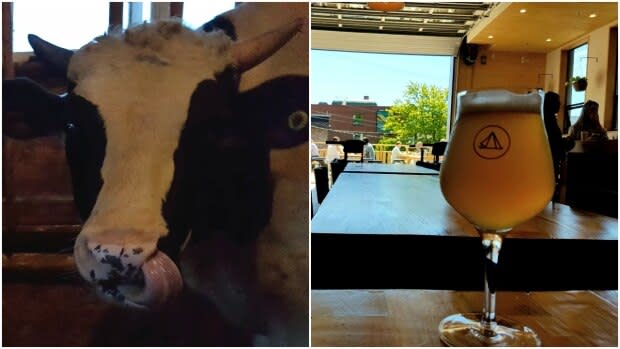
Search for grain a real pain
In fact, the search for grain proved more competitive than he first thought. Most local craft brewers like Landwash, Ninepenny, and Yellowbelly already had deals in place with other dairy farmers on the northeast Avalon.
So when Coates caught wind of a new brewery opening in an old fire hall in downtown St. John's, he jumped at the opportunity.
Turns out the folks at Bannerman Brewing were happy to have the conversation.
"We started chatting with Peter. We went halves on a couple of big fish bins — he shows up on brew days and takes it away," says Phil Maloney, general manager of Bannerman Brewing.
"It's super convenient and we're glad to help out a little bit."
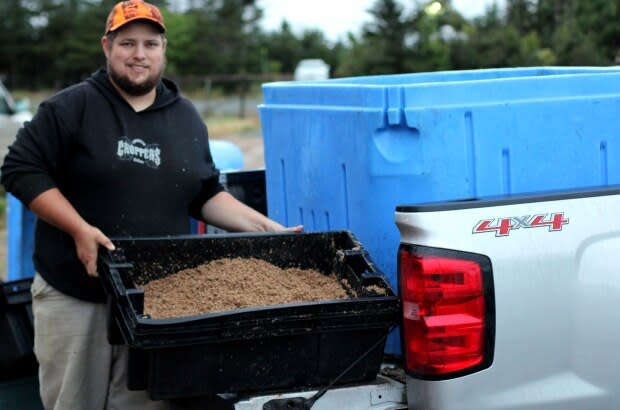
According to Bannerman brewing master Dave Bridger, a single batch of beer requires anywhere from 300 to 600 kilograms of grain, and ultimately results in about 1,500 litres of beer.
The grain is boiled to remove the sugar, and then the liquid and the grain are separated before adding yeast and other fermenting agents to create alcohol. This is why eating the grain doesn't make the cows tipsy.
"All you want is the sugar from it to make the beer. This is what's left over," said Bridger, referring to a large blue tub filled with spent grain.
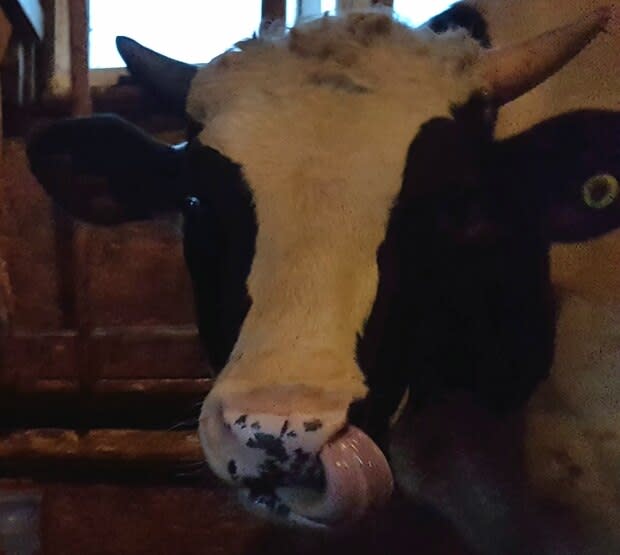
Mutually beneficial relationship
While Coates' animals are benefiting from a steady supply of high-protein feed, the arrangement has proved equally beneficial for the fledgling beer startup.
"We'd probably have a lot of rodents around if we had to throw it in a dumpster," Maloney said. "And if we had to truck it away, that gets pretty expensive very quickly."
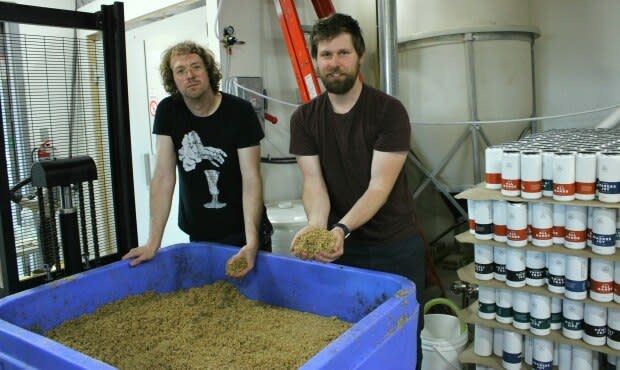
Maloney said the savings on garbage removal alone have been "significant." He estimates the business has saved between $300 and $400 per month since striking up their relationship with Coates back in February.
Coates, meanwhile, estimates he's saving an average of $400 per month on feed as well.
He also hopes to continue the partnership as both businesses grow.
"I'm hoping as they expand, I'll expand."
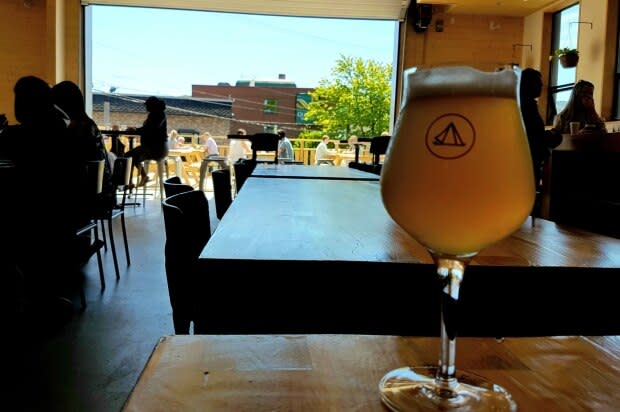
Read more articles from CBC Newfoundland and Labrador


